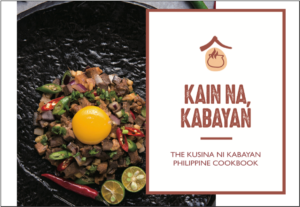In the Catholic priesthood vocation, the adage “Many are called, but few are chosen” rings true. Rommel Penullar heard the call and responded by entering a seminary in Dagupan City in Northern Philippines. When he finished his priestly studies, Rommel realized he was not part of the chosen few and instead pursued a different path.
“I always had an intention to become a priest when I was young, but after graduating from the seminary, I filed an indefinite leave and never returned. And out of the 18 men in my cohort, only three became priests,” Rommel says. “But during my time at the seminary, I had the chance to visit orphanages. I loved teaching and it’s a passion that had already been brewing during college, but I did not realize it was there until I moved to Beijing.”
Opportunity knocked in 2005 when Rommel visited a seminarian friend who was then working in Beijing. During this period, Rommel had just begun his teaching career at a university in Northern Philippines. But that fateful visit eventually led Rommel to continue his career in China.
“My first foray into teaching in China was in a kindergarten where I taught basic English to local pupils. It was a big adjustment, considering I had taught philosophy to university students. And for a long time, I shied away from teaching younger children because I thought it was difficult. But when I began my work at that kindergarten, I realized I love working with kids,” he says.
Since then, Rommel has taught in local and international kindergartens for almost 15 years. The most recent school he worked in offered him the opportunity to host an afterschool class. From the various topics that he could focus on, he chose cooking.
Rommel’s interest in cooking was borne out of necessity and “for survival reasons,” since he lived alone in China. And so, during his free time after work, Rommel experimented with Chinese ingredients to recreate Filipino dishes. Rommel used that offer to marry his newfound love for cooking with his passion for teaching.
“It became easier for me to conduct the cooking classes because I can easily get along with children. When the school added Saturday morning sessions, I was somewhat ‘forced’ to step up my cooking skills and learn precise measurements of ingredients. To me, embracing the concept of cooking itself is one thing but cooking to make other people happy and satisfied is something that came up in the bigger picture,” he explains.
Rommel became connected to Kusina ni Kabayan (KnK) when he worked with its founder Perlita Pengson at the same kindergarten in 2017. Perlita introduced him to the community and told him about its main goal of helping Filipino food entrepreneurs in Beijing and other parts of Greater China. Rommel soon became one of the ardent KnK members who always volunteered to man the community’s Philippine booth at food festivals or to emcee at various KnK fairs. He even participated as a food vendor and cashed in on his budding cooking skills in the Krismas sa Pinas Christmas bazaar in December 2018.
“I like to say that KnK has done a lot of great things for the Filipino communities in Beijing. It has helped people like me to be connected with other Pinoys. But what I like the most is KnK has given us—home cooks and volunteers who love Filipino food—a chance to show our talents in cooking. Some Filipino entrepreneurs have promoted their businesses through KnK events as well,” he says.
As of publishing time, Rommel lives with his wife, marketing professional Aileen Gao in Colorado in the United States, where he is finishing his graduate studies in early childhood education. Both of them are optimistic that they can bring to Denver their style of fun cooking classes for children they have developed in China.
But before venturing out into Colorado, Rommel has entrusted three of his favorite recipes to KnK for the Kain na, Kabayan! cookbook. He picked the Filipino trait maganda (beautiful), which, in many ways, describes his chosen path from the seminary to the classroom, and eventually to the kitchen.
Inihaw na Pininyahang Manok is Rommel’s popular dish first introduced during the Krismas sa Pinas bazaar, where he transformed the regular grilled chicken recipe into a tropical delight with the tang of pineapple. Rommel revisits his foodie journey at the seminary with his Pancit Canton at Hipon, his take on the stir-fried Chinese noodle dish. This recipe reflects the economical, flexible, and easy lutong-bahay (Filipino home cooking) style of preparing pancit canton using spare vegetables and left-over meat from last night’s dinner table. Rommel adds another variant to the popular Filipino adobo with his Adobong Binagoongang Pusit recipe, his attempt to explore simmering squid in a savory marinade of soy sauce, vinegar, spices, and bagoong (shrimp paste).
Rommel knew he was not part of “the chosen ones” called to the priesthood. But for him, it is never too late for anyone to find their chosen path.
“You just have to ignite the passion that you have already started. You will never realize that dream if you will not dare to take that first step. You wouldn’t really know how far you can go or how much you can offer if you don’t try,” he says.

This article first appeared in the Kain na, Kabayan: The Kusina ni Kabayan Philippine Cookbook.
Email kusinanikabayan@gmail.com to get your copy.
Photos: Kusina ni Kabayan
